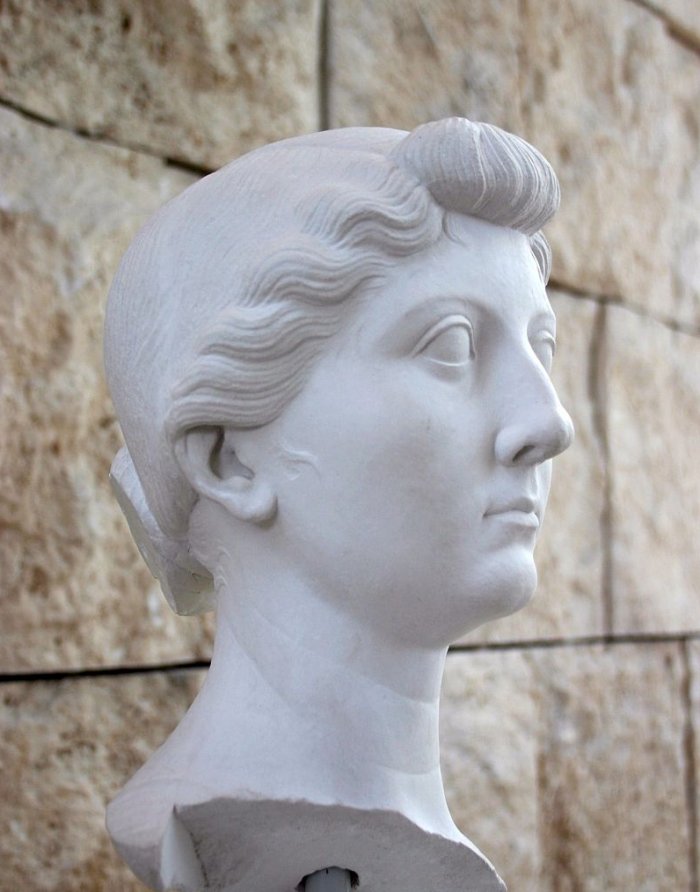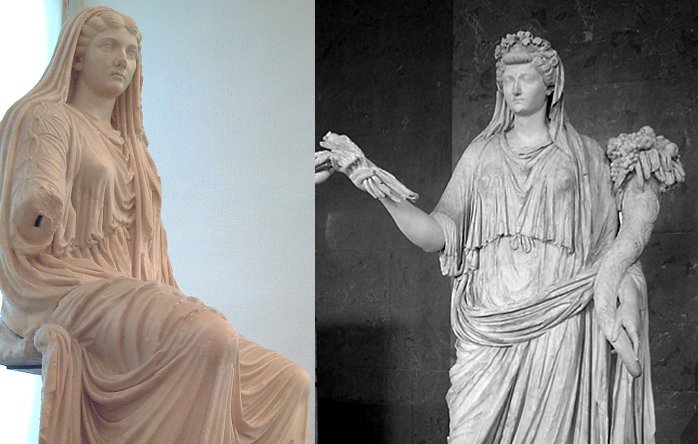World’s First Diva Was Livia – Wife Of Emperor Augustus
AncientPages.com - The word “diva” comes from Latin and means “goddess”. It was common in ancient times to talk about divas. However, the meaning of the term was entirely different to what we associate it with today.
Our modern society defines a diva as a usually glamorous and successful female performer or personality. Sometimes we also use the word diva to describe a woman who is regarded as temperamental or haughty.
Livia Drusilla, wife to Emperor Augustus. Image credit: Giovanni Dall'Orto
An ancient diva was by no means an arrogant or troublesome individual with a high opinion of herself.
One of the first females to who was recognized as a diva was Liva (58 B.C. – 29 A.D), wife of Emperor Augustus (63 B.C – 14 A.D), founder of the Roman Empire.
See also:
What Was Legio Martia And Why Were The Roman Soldiers Called The Martians?
Rome’s Most Wanted Enemy – Poison King Mithradates Murdered 80,000 Roman Civilians
More Fascinating Ancient History Facts
Both Emperor Augustus and his wife Livia became worshipped in ancient Rome. Livia gained the diva status in 42 A.D, some years after her death when her grandson Claudius became Emperor.
She was continuously worshipped as a diva until the fourth century.
Copyright © AncientPages.com All rights reserved. This material may not be published, broadcast, rewritten or redistributed in whole or part without the express written permission of AncientPages.com
More From Ancient Pages
-
 Mystery Of The Thirteen Towers Of Chankillo – Oldest ‘Full-Service Observatory’ In The Western Hemisphere
Featured Stories | Nov 6, 2018
Mystery Of The Thirteen Towers Of Chankillo – Oldest ‘Full-Service Observatory’ In The Western Hemisphere
Featured Stories | Nov 6, 2018 -
 Legacy Of The Ancients: Cyrus The Great Cylinder – The Charter Of Human Rights
Featured Stories | Feb 17, 2014
Legacy Of The Ancients: Cyrus The Great Cylinder – The Charter Of Human Rights
Featured Stories | Feb 17, 2014 -
 Mayan Underwater Tunnels With Bones Of Humans, Elephant-Like Creatures, Tigers, Bears, Tigers And Extinct Horses, Rediscovered In Yucatan
Archaeology | Jan 19, 2018
Mayan Underwater Tunnels With Bones Of Humans, Elephant-Like Creatures, Tigers, Bears, Tigers And Extinct Horses, Rediscovered In Yucatan
Archaeology | Jan 19, 2018 -
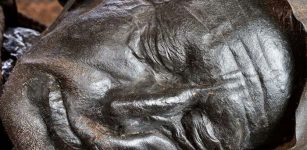 Mystery Of Europe’s Bog Body Phenomenon Solved By Scientists
Archaeology | Jan 12, 2023
Mystery Of Europe’s Bog Body Phenomenon Solved By Scientists
Archaeology | Jan 12, 2023 -
 Ancient Monuments The World Is Not Allowed To See – Reason For Denial? – Part 1
Featured Stories | Aug 24, 2020
Ancient Monuments The World Is Not Allowed To See – Reason For Denial? – Part 1
Featured Stories | Aug 24, 2020 -
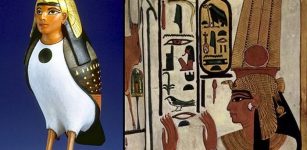 Why Were Ba And Ka Powerful Elements Of Soul In Ancient Egyptian Beliefs?
Egyptian Mythology | Apr 21, 2020
Why Were Ba And Ka Powerful Elements Of Soul In Ancient Egyptian Beliefs?
Egyptian Mythology | Apr 21, 2020 -
 Underground Orvieto – Etruscan ‘City Under A City’ With Labyrinth, Tunnels, Pyramidal Structures, Oil Mills And Water Supply
Featured Stories | Jul 2, 2022
Underground Orvieto – Etruscan ‘City Under A City’ With Labyrinth, Tunnels, Pyramidal Structures, Oil Mills And Water Supply
Featured Stories | Jul 2, 2022 -
 Dismantled Ancient Stone Circle In West Wales Was Used To Rebuilt As Stonehenge
Archaeology | Feb 13, 2021
Dismantled Ancient Stone Circle In West Wales Was Used To Rebuilt As Stonehenge
Archaeology | Feb 13, 2021 -
 Star-Shaped Magnetic Anomaly At Hidden Stone Circle In The Outer Hebrides Gives New Insight Into Ancient Beliefs
Archaeology | Jan 2, 2020
Star-Shaped Magnetic Anomaly At Hidden Stone Circle In The Outer Hebrides Gives New Insight Into Ancient Beliefs
Archaeology | Jan 2, 2020 -
 Biblical Mystery Of The Forbidden Fruit And The ‘Deep Sleep’
Biblical Mysteries | Feb 13, 2022
Biblical Mystery Of The Forbidden Fruit And The ‘Deep Sleep’
Biblical Mysteries | Feb 13, 2022 -
 Hidden Story Of The Sacred Wiradjuri Carved Trees Revealed
Archaeology | Nov 28, 2023
Hidden Story Of The Sacred Wiradjuri Carved Trees Revealed
Archaeology | Nov 28, 2023 -
 Peculiar Unsolved Greek Mystery In New York
Featured Stories | Mar 26, 2024
Peculiar Unsolved Greek Mystery In New York
Featured Stories | Mar 26, 2024 -
 Huge Round Ancient Sewer System Covering 160,000 Square Meters Discovered In Ancient City Of Mastaura
Archaeology | Apr 25, 2022
Huge Round Ancient Sewer System Covering 160,000 Square Meters Discovered In Ancient City Of Mastaura
Archaeology | Apr 25, 2022 -
 Mystery Of The Copper Age ‘Ivory Lady’ Solved
Archaeology | Jul 6, 2023
Mystery Of The Copper Age ‘Ivory Lady’ Solved
Archaeology | Jul 6, 2023 -
 Biblical City Of Gezer: Important Ancient City Mentioned In The Amarna Letters
Biblical Mysteries | Sep 6, 2018
Biblical City Of Gezer: Important Ancient City Mentioned In The Amarna Letters
Biblical Mysteries | Sep 6, 2018 -
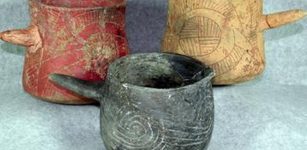 Cocoa, Caffeinated ‘Black Drink’ Widely Used In Native American Societies
News | Sep 8, 2015
Cocoa, Caffeinated ‘Black Drink’ Widely Used In Native American Societies
News | Sep 8, 2015 -
 2,800-Year-Old Urartu Jars Uncovered In Eastern Turkey
Civilizations | Sep 9, 2015
2,800-Year-Old Urartu Jars Uncovered In Eastern Turkey
Civilizations | Sep 9, 2015 -
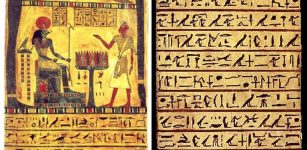 Strange History Of Stele Of Ankh-ef-en-Khonsu – ‘Stele Of Revealing’ Gave Birth To Thelema, A New Religion
Artifacts | Apr 3, 2018
Strange History Of Stele Of Ankh-ef-en-Khonsu – ‘Stele Of Revealing’ Gave Birth To Thelema, A New Religion
Artifacts | Apr 3, 2018 -
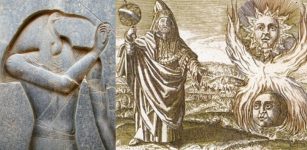 Hermes Trismegistus Brought Divine Wisdom To Mankind – Secret Knowledge Of Hermetica
Featured Stories | Jan 17, 2019
Hermes Trismegistus Brought Divine Wisdom To Mankind – Secret Knowledge Of Hermetica
Featured Stories | Jan 17, 2019 -
 Rare Ancient Underwater Maya Ruins And Salt Kitchens Discovered
Archaeology | Oct 13, 2022
Rare Ancient Underwater Maya Ruins And Salt Kitchens Discovered
Archaeology | Oct 13, 2022

